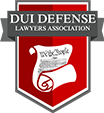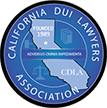In California, DUI charges are treated as priorable charges. This means that every time you violate DUI laws and face another DUI charge, the consequences are more severe than the previous one. California DUI laws have more severe and life-changing penalties for a fourth DUI charge. If you are facing your fourth DUI charge, you can end up being convicted as a felon. This requires professional help to help you protect your rights and reduce the chances of spending time in prison.
At the Bakersfield DUI Attorney, we have experience dealing with prior DUI cases and have established remarkable success in most of the cases we handle. We understand the stress and anxiety that comes with subsequent DUI or any DUI charges, and that's why we are ready to help you once you reach out to our offices.
How California Laws Define 4th DUI Offenses
As discussed above, California DUI cases are priorable. Therefore, if you were convicted of a third DUI charge within the past ten years, you will be charged with a 4th DUI offense in the current case. In a 4th DUI offense, your previous convictions should be a combination of any of the following:
- Driving under the influence, Vehicle Code 23152(a)
- Driving with excessive BAC, Vehicle Code 23152(b)
- DUI with injury, Vehicle Code 23153
- DUI with gross vehicular manslaughter, California Penal Code 191.5
- Vehicle Code 23103, Wet reckless
- An expunged conviction for any DUI offenses
Driving Under the Influence, Vehicle Code 23152(a)
Under Vehicle Code 23152(a), it's unlawful to drive a vehicle while under the influence of any alcoholic beverage. Under this statute, motorists displaying signs and symptoms of intoxication can be charged for DUI even if there is no evidence proving their BAC level is above 0.08%.
A conviction under this statute while having prior convictions carries harsher penalties. For instance, a third-time DUI in ten years carries a 3-year driver's license suspension, meaning that a fourth DUI charge would have much harsher penalties.
Driving with Excessive BAC, Vehicle Code 23152(b)
Vehicle Code 23152(b) is the California statute that makes it illegal to drive with a BAC level of 0.08% or more. The offense is a misdemeanor, but having three prior convictions can prosecute you with a felony in your fourth offense.
Vehicle Code 23153, DUI Causing Injury
Vehicle Code 23153 defines DUI causing injury as driving while under the influence, causing bodily injuries on another person. Prosecutors can charge you with a misdemeanor or a felony, depending on the circumstances of your offense.
Penal Code 191.5, Gross Manslaughter While Intoxicated
Gross vehicular manslaughter occurs while driving under gross negligence or the influence of alcohol or drugs causes an accident that kills another person. A conviction for this crime is a felony. Under this statute, "a gross negligent act" is separate from the actual DUI and can be an infraction, misdemeanor, or an action that would cause death.
Vehicle Code 23103, Reckless Driving
Wet reckless, a nickname for reckless driving, is a form of DUI plea agreement or no contest where the prosecutor has to drop serious DUI charges in exchange for the defendant pleading to less severe wet reckless charges. Wet reckless can still count as part of your prior offense and can have you charged with a fourth DUI.
Expunged Conviction
The fact that you have your prior DUI convictions expunged does not mean that you didn't commit it. It only benefits you by keeping your criminal records out of the public. Therefore, committing a subsequent DUI will have your prior crimes considered as prior convictions even after expunging them.
Factors that Prosecutors Must Prove in your 4th DUI Charge
The factors that prosecutors must prove in your fourth DUI charge depend on the specifics of the crime you've committed. However, there are common aspects known as elements of the crime that needs proving, and they are as follows:
You Drove
Driving is the first element that prosecutors must prove in a DUI charge. Otherwise, they wouldn't be able to charge you for this or any DUI charges. California laws require prosecutors to show some vehicle movement, regardless of how slight the movement is. The vehicle's movement in question can be proven by circumstantial evidence to prove that you were driving.
For instance, if a traffic officer touches your vehicle's bonnet and finds it warm, this might infer that you were driving, even if you were found parked in a lot.
Your BAC level was at least 0.08% While You Were Driving
Unlike Vehicle Code 23152(a), the state must have an objective test to prove your 4th DUI. This means that your BAC level was at least 0.08% when you were driving your vehicle. Under this requirement, the law presumes that defendants are guilty of DUI, regardless of whether they were experiencing any mental or physical effects of drugs or alcohol, as long as their BAC level is at least 0.08%.
The prosecutor can only establish that your BAC level is more than the recommended legal limit only if they execute a blood or breath test. They usually rely on the blood, urine, or breath test results presented by the arresting officer.
You Have at Least Three Prior Convictions for A DUI Within the Last Ten Years
A fourth DUI charge can only occur if you have at least three prior convictions for any DUI charge or a combination of DUI charges mentioned above within ten years. The ten-year period represents a "washout" or a "lookback" period that encompasses the offense date, NOT the conviction date.
For the prosecution to prove that you have a prior conviction, they must use your court records, DMV (Department of Motor Vehicle) records, and certification to complete any court-ordered drug or alcohol program. Please note that you can still be charged with a 4th DUI even if you have prior out-of-state court and DMV records that would are convicted as DUI in California.
Penalties for a 4th DUI Offense in California
The penalties for a fourth DUI offense are harsh, especially when you're charged with a felony DUI. However, the penalties vary case-to-case depending on:
- The specifics of your case.
- The level of the aggravating factors related to your BAC.
- The number of prior DUI convictions you have.
However, there are specific sentencing guidelines that the judge will use while convicting you for your fourth DUI. These include:
- 16 months, two years, or four years in prison.
- A fine that ranges between $390- $1,000.
- Revocation of your California driving privilege.
- Mandatory attendance of a drug/alcohol treatment program.
- Habitual traffic offender status for three years.
Please note, California Senate Bill 1046 makes it possible for a defendant to continue driving, even with revoked driving privilege, as long as he or she keeps an ignition interlock device installed for three years.
Effects of Revocation of Your California's Driving Privilege
Contrary to driver's license suspension, revocation of your driver's license means that you must completely apply for and issuance of your new driving privileges. The revocation lasts for a specific period, but the DMV can withhold it for as long as they want. In some cases, the DMV can consider reinstating the driver's privilege after one year, but with certain exceptions.
Re-applying for a revoked driver's license means that the driver must re-apply for the issuance of new driving privileges. The person must pass a written test, a vision test, and a driving test similar to those they had to complete when applying for a driver's license.
Habitual Traffic Offender in California
Under California Vehicle Code 14601.3, motorists can get a habitual traffic offender status if their driver's license is suspended or revoked and accumulate their driving record history. Penalties for habitual traffic status depend on the number of convictions you've had for this offense.
A first conviction would lead to custody for thirty days in jail and a $1,000 fine. A second conviction would lead to 180 days of custody in county jail and a fine of $2,000.
Aggravating Factors in DUI Sentences
One factor that can have you convicted with severe DUI charges is having aggravated factors related to your 4th DUI charges. Aggravating factors are circumstances in a person's criminal conduct or history specific to the facts of the case that would lead the court to impose a higher penalty after a conviction. Here are several factors in DUI sentences.
Excessive Speeding
Most DUI cases start with the driver being initially stopped for excessive speeding. If a person is found to be speeding and is arrested for a fourth DUI, this will attract severe punishment.
Traffic Accident
Causing a traffic accident, whether it results in an injury or not, is a severe issue in California. This can be an aggravating factor even when the driver barely hits a pole or scratches another person's car, whether it will immediately warrant an aggravating circumstance or not.
Injuries to a Person or Another Person
When there are injuries involved, whether minor or severe, prosecutors usually push for higher penalties. Minor injuries might still warrant higher potential consequences, especially if in your fourth DUI arrest. The effects can be harsher if another person suffers chronic injuries and would want hospitalization.
Having a Passenger Under 14 Years in Your Vehicle
Vehicle Code 23572 allows enhanced penalties for defendants driving while under the influence of a child under the age of 14 years in their vehicle. In a 4th DUI offense, you'll have to serve a mandatory jail time of 90 days, apart from the other penalties.
Refusal to Submit to a Chemical Test
All motorists in California, whether licensed or not, must submit to a chemical test of their BAC if a traffic officer finds probable cause to believe that the motorist is driving while under the influence of other drugs.
Refusal to submit to a chemical test can result in automatic suspension of your license for 3-4 years with the possibility of a maximum of ten years in a fourth DUI arrest. You will not obtain a restricted license anytime during the time of your license suspension.
Please note, prosecutors must prove all the above-stated factors while considering them as aggravating factors worth enhancing your sentencing. That's why it's recommendable to have a DUI attorney by your side to help you challenge the evidence presented by the prosecution against you.
Legal Defenses for Fourth DUI Charges
Hiring a DUI attorney reduces the possibility of a successful DUI conviction or the severity of the charges made against you. Once you hire a professional attorney, he or she should adopt relevant legal defense strategies that would help in your case. Below are a few strategies that would work for your case.
Prove that Bad Driving Doesn't Equate DUI
DUI prosecutors usually focus on your driving patterns while accusing motorists of DUI. They usually rely on the arresting officers' testimonies to prove this fact. This usually occurs when pressing charges under Vehicle Code 23152(a), which relies heavily on the driving patterns exhibited by motorists.
Your attorney can rebut this evidence by arguing that sober people commit the majority of traffic violations, and the driving patterns that you exhibit don't precisely predict that you were DUI. You can also argue that the NHTSA's driving pattern cues can only predict DUI up to 35% of the time.
Prove that Portraying Objective Intoxication Symptoms Isn't the Same as DUI
Most DUI officers rely on physical appearance in their DUI investigations. Your arresting officer can argue out that you were DUI due to objective symptoms like:
- A flushed face.
- Slurred speech.
- An unsteady gait.
- A strong alcoholic odor on your mouth.
These objective symptoms are listed on a printed form which the arresting officer marks off while investigating you for DUI. Your DUI attorney should defend you by explaining that these signs might be a result of:
- Eye irritation
- A cold
- Allergies
- Fatigue
Prove that Field Sobriety Tests Results are Not Precise
DUI prosecution's evidence usually includes the defendant's Field Sobriety Tests. Prosecutors usually rely on these results, especially if you poorly performed these tests, concluding that you could be guilty of DUI. Your DUI attorney can argue out that your lack of coordination and balance would have been affected by issues like:
- Nerves
- Your physical coordination
- Your clothing
- Fatigue
- Flat feet
Apart from that, your DUI lawyer can challenge the accuracy of these test results. According to NHTSA, these results are about 91% accurate in predicting alcohol impairment. Therefore, assuming that this is true, this legal defense can be viable since more significant factors can lead to inaccurate test results.
False High BAC Results Due to Mouth Alcohol
False high BAC can be a successful ground for DUI charges, especially when charged under VC 23152(b). Traffic officers must allow the motorist to stay for fifteen minutes to observe them before a breath test to ensure that they don't put any alcoholic substance in their mouth, including:
- Medicine like cough syrup and homeopathic medicines.
- Mouthwashes and mouth spray.
DUI officers must also ensure that motorists don't regurgitate, belch, or burp. Doing these can bring alcohol from the stomach into the mouth, in a phenomenon called residual mouth alcohol. Since breath testing equipment accuracy relies on your deep lung air measurement, blowing a breath test with residual mouth alcohol might mix with the air from the lung. This would register a falsely high BAC reading, which doesn't reflect whether you were DUI or not.
Claim that the DUI Officer Didn't Properly Observe You for 15- Minutes as Required
As mentioned above, DUI officers must observe motorists for fifteen minutes before a breath test. Most officers don't observe motorists as required and spend this time setting up the breathalyzer and doing their paperwork. Proving that the officer didn’t conduct the observation properly would throw doubts on your breath test and your DUI investigations.
Non-Compliance California's Title 17 Regulations on Chemical Tests
California Code of Regulations Title 17 controls how breath and blood tests should be conducted. These requirements include:
- Observing the suspect for fifteen minutes.
- Ensuring that the person undertaking the chemical test is adequately trained.
- Administrating the chemical tests properly.
- Regular maintenance and calibration of the chemical testing equipment.
- Proper handling of the test samples.
Failure to observe any of these requirements brings serious doubt to the credibility of your test result. Your DUI lawyer can depend on these failures to raise doubts on the whole DUI investigation process and probably have the court dismiss the charges made against you.
Prove that You Had a Rising BAC
Drinking an alcoholic drink or beverage isn't wrong. The only bad thing is driving while impaired. This means that your BAC level rises steadily to reach the peak levels. It can take an average of fifty minutes for your BAC level to reach its peak level, but this varies from one person to the other.
Therefore, if your BAC was rising and were kept for too long before you took a breath test, it means that the test results don't reflect your actual BAC while driving. Your DUI defense attorney can raise serious doubts about your test result, making this a valid legal defense strategy to drop your DUI charges.
Claim that You Weren't Mentally Alert During the Test
Differentiating between mental and physical impairment can be a suitable DUI defense strategy. DUI officers usually testify on DUI suspects based on the physical signs, which is different from their mental impairment.
DUI experts believe there's a considerable discrepancy between being physically and mentally impaired after taking an alcoholic drink. Therefore, your attorney can prove that your physical impairment does not prove that you were mentally impaired by drugs or alcohol. Physical impairment usually results from medication, fatigue, nerves, or something else apart from alcohol.
Claim that a High Protein Diet inflated your BAC Results
Eating certain popular diets and suffering from conditions like diabetes can create an inflated BAC recording, especially under particular conditions. Conditions like diabetes, fasting, and high-protein carbohydrates can be a reason for the inflated BAC.
The liver usually produces a toxic by-product known as ketones while burning fat. These ketones have a chemical similarity to isopropyl alcohol and can trick your breath test into recording a high BAC level. If your DUI defense attorney can rely on this as your legal defense, you'd probably succeed in dropping the DUI charges filed against you.
Inaccuracy or Test Errors with the Breathalyzer
A breathalyzer can record a false-positive result due to several issues. These include:
- The physical difference between motorists that would affect the partition ratio
- Improper calibration and maintenance
- The breathalyzer's margin of error
Even when the breathalyzer is in perfect condition, experts agree that chemical testing has an error ranging from 0.005% to 0.02%. Your DUI attorney can claim that the margin of error means that your BAC level is below the required legal limit of 0.08%.
Prove that There Was No Probable Cause for Your DUI Stop
DUI officers must have a reasonable probable cause or suspicion to stop you at a DUI checkpoint. The stoppage is temporary detention and is considered a seizure under the 4th Amendment. In most DUI stops, the police must ensure that the motorists exhibit NHTSA impairment patterns, stop lights, or speeding before they stop a DUI suspect.
If you were stopped and the officer didn't have probable cause or suspicion to stop you, your DUI defense lawyer can file a motion to suppress evidence obtained through an illegal search. This would be a suitable way of dismissing your Vehicle Code 23152 charges.
Find a Bakersfield DUI Attorney Near Me
If you are facing charges for a 4th DUI, you have to seek professional legal services. At Bakersfield DUI Attorney, we have experience defending motorists facing 4th DUI charges and other related charges. We will thoroughly assess your situation and ensure that we build strong legal defenses that could have your charges dismissed or reduced. Call us at 661-215-5660 to speak to one of our DUI attorneys and learn more about us.







